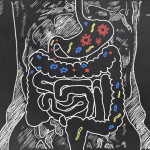By David Blyweiss, M.D., Advanced Natural Wellness
December 4, 2015
- You can’t avoid aging, but you can slow it down
- The simplicity behind the triage theory of healing
- Here’s how to make it work for you
Aging…You can’t avoid it, but you can slow it down.
One of the most compelling scenarios of aging is called the triage theory. And it’s one that makes a lot of sense to me.
Basically, it’s the theory that your body will use scarce nutrients for short-term survival. But it will do so at the expense of your long-term health.
The simplicity behind this is stunning.
As scarce nutrients race to take care of your immediate health needs, everything else in your body – your organs, muscles and other tissue – are all neglected.
Let me give you an example.
Imagine you’re low on magnesium. Without enough of this mineral, you could easily develop an irregular heartbeat or congestive heart failure.
As your needy heart (definitely a top priority!) draws up all of this vital mineral from your depleted stores, little or none will remain to fuel your kidneys and other tissue that depend upon it for proper functioning.
Next thing you know, you could be suffering from chronic kidney disease. This may be why heart problems and kidney failure often go hand-in-hand.
That’s just one example, but there are many more.
Ultimately, even if you’re only mildly deficient in any single vitamin or mineral, it can open you up to a host of age-related diseases. Heart disease, diabetes and cancer are on the short list, but there are plenty of other problems that can occur.
Unfortunately, even if you eat a healthy diet, chances are good you’re deficient in more than one nutrient. In fact, today less than half of us folks here in the U.S. are getting enough vitamin E, magnesium, calcium, vitamin A and folate from food sources.
Are You Suffering From...
- Love handles and a pot belly
- Romance that isn't what it used to
- Forgetfulness and inattention
- Low (or no) strength and endurance
- A sex drive that's shifted into neutral...or worse
If so...you may have Mature Male Burnout. Click here to discover more about this unique condition and what you can do about it.
Yes, it’s true. Here in the land of plenty, we’re overfed and undernourished. This is why I always recommend that my patients take a high quality multivitamin.
Simply put, bringing your nutrients up to par will give you a much better chance of warding off disease as you age. They can also slow down the aging process. That’s because taking a multivitamin helps prevent telomere shortening, which can help you achieve a younger biological age.
But just to be clear, I don’t consider One-a-Day vitamins to be high quality. Neither are brands like Nature Made Adult Gummies. They contain just enough of a few vitamins to make you feel like you’re doing something good for yourself.
Instead, look for a full spectrum formula that includes vitamins, minerals and antioxidants. You may have to take several capsules a day, but it’s well worth it in the long run.
I also suggest you find a formula that contains D3 and K2. These are two nutrients we Americans fall woefully short of. It’s estimated that about three out of every four people are vitamin D deficient. And around 80% of us may not be getting enough vitamin K2.
It might be difficult to find a multivitamin that includes these two vitamins. If that’s the case, you can always purchase them separately.
I suggest getting your D from a supplement that contains the cholecalciferol form of D3. 1,000 to 2,000 IU daily should do the trick. However, if you’ve had your levels tested and find you’re deficient, you may need up to 5,000 IU a day.
To boost your vitamin K2 status (also called menaquinone), I recommend supplementing with 100 mcg once a day.
These are simple measures that can help prevent scarcity of nutrients. This means there will be plenty of nourishment to go around…for both your body’s short and long-term health needs.
Sources:
Ames BN. Low micronutrient intake may accelerate the degenerative diseases of aging through allocation of scarce micronutrients by triage. Proc Natl Acad Sci U S A. 2006 Nov 21;103(47):17589-94.
Council for Responsible Nutrition Fact Sheet: Nutrient Shortfalls. Feb 2014.
Silverberg D, et al. The association between congestive heart failure and chronic renal disease. Curr Opin Nephrol Hypertens. 2004 Mar;13(2):163-70.
Xu Q, et al. Multivitamin use and telomere length in women. The American Journal of Nutrition. 2009;89:1857-1863.







